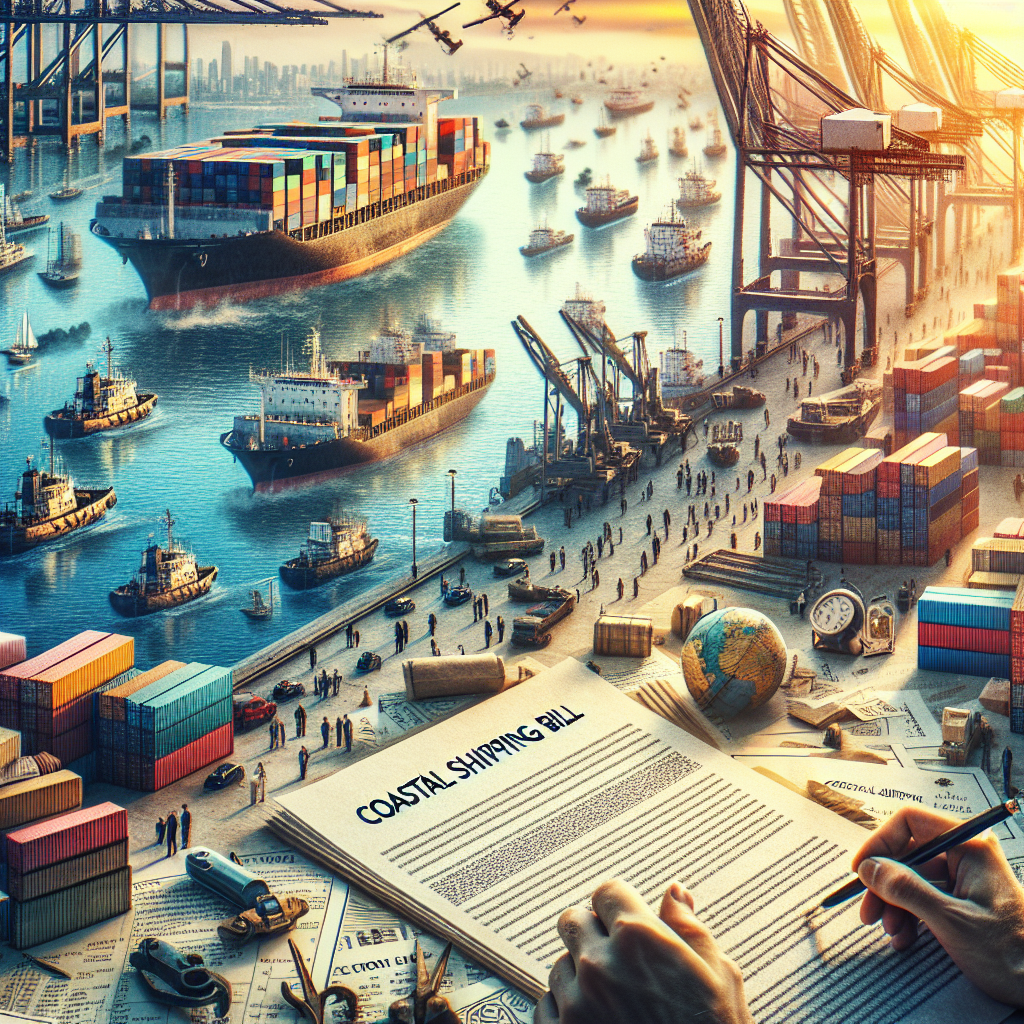Rajya Sabha Passes Coastal Shipping Bill, 2025: Boost to India’s Maritime Sector
The passage of the Bill comes after its approval by the Lok Sabha on April 3, 2025, and signifies the replacement of the outdated Part XIV of the Merchant Shipping Act, 1958.

- Country:
- India
In a watershed moment for India’s maritime sector and coastal economy, the Rajya Sabha today passed the much-anticipated Coastal Shipping Bill, 2025, paving the way for a modern, integrated, and globally competitive shipping ecosystem along the nation’s 11,098-kilometre coastline. The historic legislation, introduced by Union Minister of Ports, Shipping & Waterways, Sarbananda Sonowal, marks a new chapter in India’s maritime journey—one that is set to bolster trade, create jobs, and drive economic growth across nine coastal states and four union territories.
Modernising Maritime Law for a New India
The passage of the Bill comes after its approval by the Lok Sabha on April 3, 2025, and signifies the replacement of the outdated Part XIV of the Merchant Shipping Act, 1958. The new Act streamlines and simplifies India’s legal framework for coastal shipping, aligning it with international best practices and global cabotage standards.
Union Minister Sarbananda Sonowal, while presenting the Bill in Parliament, emphasized its centrality to India’s aspirations of increasing coastal cargo movement to 230 million metric tonnes by 2030. He described the Act as both a “legal reform and a strategic enabler”—one that will improve logistics efficiency, reduce regulatory burden, foster employment, and support India’s vision of Aatmanirbhar Bharat (self-reliant India) and Viksit Bharat (developed India).
Key Provisions of the Coastal Shipping Bill, 2025
-
Comprehensive Legal Framework: The Bill, divided into six chapters and 42 clauses, provides a modern, clear, and progressive framework to regulate all aspects of coastal shipping.
-
Simplified Licensing: The legislation introduces an easier licensing system for Indian vessels engaged in domestic coastal shipping, making entry and operation more efficient for Indian players.
-
Regulation of Foreign Vessels: It sets clear rules for foreign vessels participating in coasting trade, ensuring a level playing field and safeguarding national interests.
-
Strategic Planning: The Bill mandates the creation of a National Coastal and Inland Shipping Strategic Plan, to guide infrastructure development, investment, and policy direction for years to come.
-
National Database for Coastal Shipping: A robust, real-time digital database will provide authentic and updated sector data, enhancing transparency and aiding investor confidence.
-
Supply Chain Security and Local Participation: By encouraging higher participation of Indian ships in domestic cargo movement, the Act is set to enhance supply chain resilience and reduce reliance on foreign vessels, thereby conserving foreign exchange and supporting local economic development.
Driving Coastal Economic Growth and Employment
The new law is expected to unlock the vast economic potential of India’s coastline, stimulating local economies, boosting port activity, and generating new employment opportunities across the logistics, warehousing, and ancillary sectors. With more Indian ships carrying domestic cargo, small and medium businesses in coastal regions are poised to benefit from lower transportation costs and improved connectivity.
The bill also streamlines the ease of doing business for Indian shipping operators, by minimizing red tape, removing legacy bottlenecks, and embracing digital technologies in regulation and compliance.
Laying the Foundation for a Future-Ready Maritime Ecosystem
The passage of the Coastal Shipping Act, 2025, completes a historic legislative reform trilogy for India’s maritime sector, following the approval of the Merchant Shipping Bill, 2025, and the Carriage of Goods by Sea Bill, 2025. This trio of laws gives India a forward-looking, business-friendly, and innovation-driven framework for shipping, port operations, and goods carriage.
“Under the visionary leadership of Prime Minister Narendra Modi ji, our ministry has undertaken historic legislative reforms to modernize India’s maritime sector. With the passage of all three landmark bills… we are laying a strong foundation for a future-ready maritime ecosystem that supports Atmanirbhar Bharat and propels us closer to the goal of Viksit Bharat,” said Union Minister Sarbananda Sonowal.
Next Steps: Realizing the Promise of India’s Coastline
With this transformative legislation, the Ministry of Ports, Shipping & Waterways is now empowered to launch strategic infrastructure upgrades, foster investment, and partner with private and public players to realize the full promise of India’s coast. Enhanced transparency, better data management, and streamlined processes will help position India as a major maritime hub, reduce logistics costs, and ensure resilient supply chains.
As India looks to the future, the Coastal Shipping Act, 2025 stands as a testament to the country’s commitment to sustainable growth, global competitiveness, and prosperity for all coastal communities.
ALSO READ
Ladakh's Pashmina: The 'Soft Gold' Fuelling Economic Growth
Rural India Thrives: Boost in Consumption and Optimism Amid Economic Growth
Surging GST Collections: A Sign of Resilient Economic Growth
Coal Auctions Fuel Economic Growth and Employment Surge
Union Push for 'Swadeshi': Farmers Unite for Economic Growth










